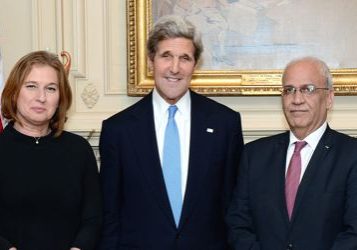
Risks aplenty in minefield of Mid-East peace talks
August 2, 2013 | Colin Rubenstein
ON Sunday, Israel’s cabinet made the agonising decision to authorise the staggered release of 104 Palestinian prisoners – including notorious mass murderers convicted for acts of wanton terror – in order to satisfy a Palestinian precondition for peace talks that began this week in Washington.
The risky move underscores some of the perils accompanying US Secretary of State John Kerry’s herculean efforts to reconvene negotiations which have substantively floundered since the Palestinians walked away from a generous, comprehensive peace offer from then-Israeli prime minister Ehud Olmert in late 2008…

Defend those who are bullied
July 15, 2013 | Daniel Meyerowitz-Katz
Given the very real harm that victims of racial abuse suffer, it is not appropriate to tell them to just “shut up and take it”. Not being offended may not necessarily be a right, but it is certainly not a duty. If we are serious about stamping out racism, we have to attach negative consequences to its promotion. Some of that will be done through civil society, but it also requires laws.
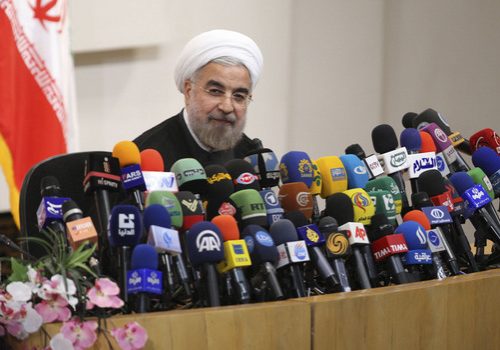
No time for nuclear honeymoon as Iran changes guard
July 2, 2013 | Colin Rubenstein
In his first press conference following his election as President, Rouhani introduced preconditions for direct Iranian talks with the US – including the easing of sanctions and conceding the core of Iran’s position on the nuclear issue before negotiations even begin.
Time has run out for such shenanigans and doubletalk. That’s just another reason why calls for some sort of a “grace period” for Rouhani over the nuclear issue must be rejected. While Iran’s political machine may have paused for an election, there is no suggestion that its centrifuges have taken a holiday.

Some forms of criticism of Israel can indeed be antisemitic
May 31, 2013 | Ahron Shapiro
It is incumbent upon world governments to take a leadership role in rejecting antisemitism in their own countries. That is why parliamentarians from around Australia – from Prime Minister Julia Gillard, members of her government, members of the Opposition and now a growing number of lawmakers down to the state level – deserve praise for recently adding their names to the London Declaration on Combating Antisemitism.
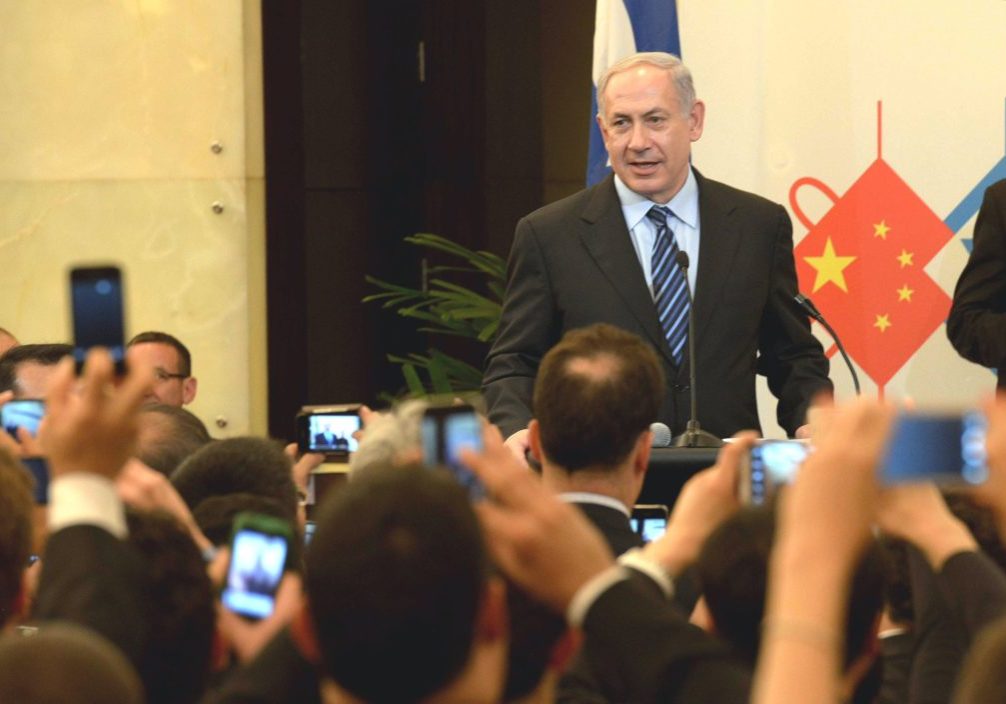
Asia ahead in courting hi-tech Israel
May 23, 2013 | Colin Rubenstein
ISRAELI Prime Minister Benjamin Netanyahu’s recent visit to China was revealing. Despite Chinese criticism of alleged Israeli airstrikes on arms shipments in Syria, Beijing arranged a program that strongly hinted it regards Netanyahu as an important visitor.

Opposing radical Islamist terrorism is a moral duty
May 1, 2013 | Colin Rubenstein
Some are now arguing that terrorism should be accepted as a normal hazard of modern life, like traffic accidents. Others draw false comparisons between terrorist acts and the rampages of mentally ill gunmen tragically endemic in the US. These sentiments fail to acknowledge the unique characteristics and goals of terrorism. Terror attacks are perpetrated by immoral ideologues, not the mentally ill. This is true whether the terrorist is acting alone or as an operative in an organised network.
As the instigator for terrorism, radical Islamism is not the only global actor, but it is a major player, and to deny this is to deny reality.
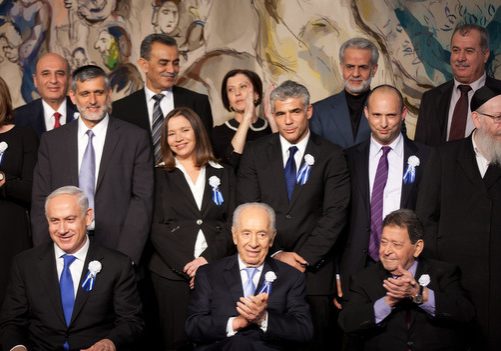
Change drives Israel coalition
March 25, 2013 | Or Avi Guy
The new Israeli coalition government – sworn in after weeks of negotiations only two days before the US President’ arrival – was indeed an achievement, and one the President should be able to appreciate. Just as Obama was elected on a platform of “hope and change” an appropriate way to describe the new Israeli coalition would be as “the coalition for change”.
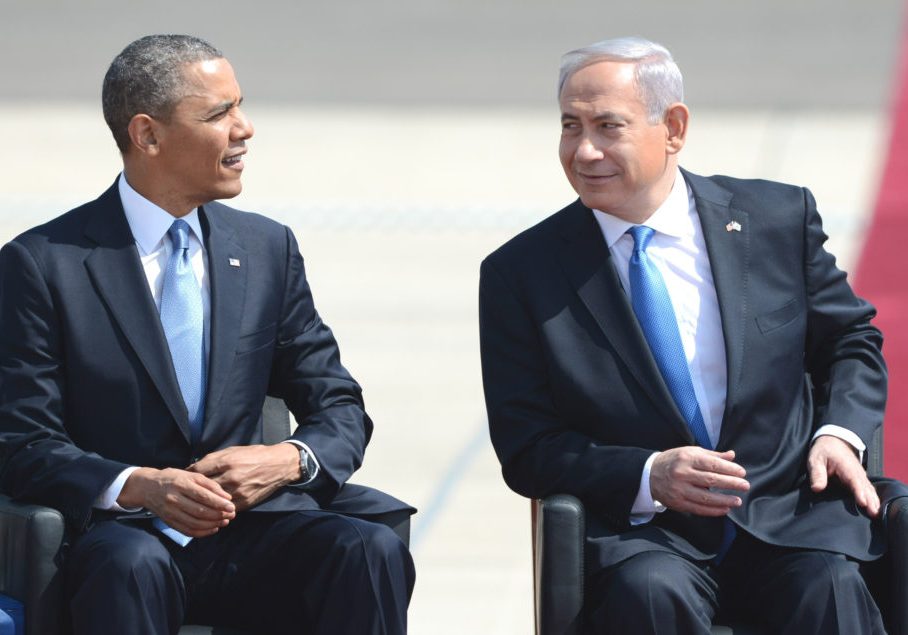
Obama will have to drive parties hard to achieve progress
March 21, 2013 | Colin Rubenstein
Obama will find many fresh faces in [Netanyahu’s] government – and also some new opportunities to push forward towards peace with all of Israel’s neighbours, especially the Palestinians. He will also find a government likely very concerned about pressing regional issues – especially the Iranian nuclear threat and the Syrian civil war – but also one interested in achieving the maximum policy co-ordination possible with Washington on these issues.
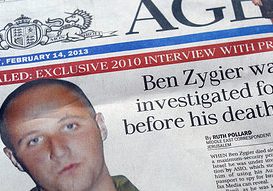
Jewish disloyalty: The myth that just won’t die
March 4, 2013 | Daniel Meyerowitz-Katz
Public debate in Australia has taken on a dark and worrying tone over the past few weeks. Recent revelations about the disturbing circumstances surrounding the death of Australian-Israeli Ben Zygier raised a spectre of racial hatred that most Jewish-Australians had hoped would have been left behind in the middle of the last century.
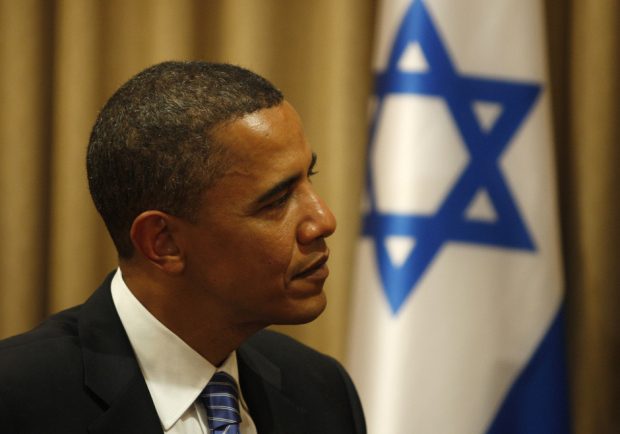
Obama trip to focus on Iran/Syria
February 18, 2013 | Colin Rubenstein
North Korea’s latest nuclear test has again brought into focus the growing urgency of stopping the nuclear weapons program of another country on the road to nuclear weapons capability – Iran. The rapidly closing window of opportunity to either persuade Iran to change course or, if all else fails, disable its nuclear facilities by force, is the backdrop for US President Barack Obama’s visit to Israel next month.

Ban Hezbollah in all its guises or forever be victim to its terror
February 11, 2013 | Colin Rubenstein
FOLLOWING revelations that an Australian passport holder is a terror suspect in the July 18, 2012, Burgas bus bombing in Bulgaria that killed six people, it is high time all countries, including Australia, banned Hezbollah in its entirety.
Bulgarian Interior Minister Tsvetan Tsvetanov said in an update on the investigation into the bombing, “There is data showing the financing and connection between Hezbollah and the two suspects . . . What can be established as a well-grounded assumption is that the two persons whose real identity has been determined belonged to the military wing of Hezbollah.”
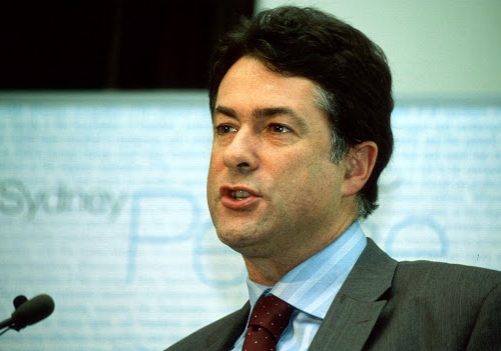
Does the CPACS boycott of Israel pass the ‘racism’ test?
January 31, 2013 | Daniel Meyerowitz-Katz
Racism is not always as obvious as some would like to believe. There is generally a ‘perfectly rational explanation’ for each isolated racist incident. The underlying prejudice only becomes apparent when looked at in a broader context.
One such case is policy adopted by the Centre for Peace and Conflict Studies at the University of Sydney (‘CPACS’) of boycotting any ties with Israel and shunning anyone who supports Israel’s existence. There have been numerous accusations of racism, especially as the centre has a history of promoting some particularly virulent antisemites, but they are not calling for the slaughter of the ‘Christ-killers’ just yet, and their explanations for the boycott can sometimes sound reasonable.






